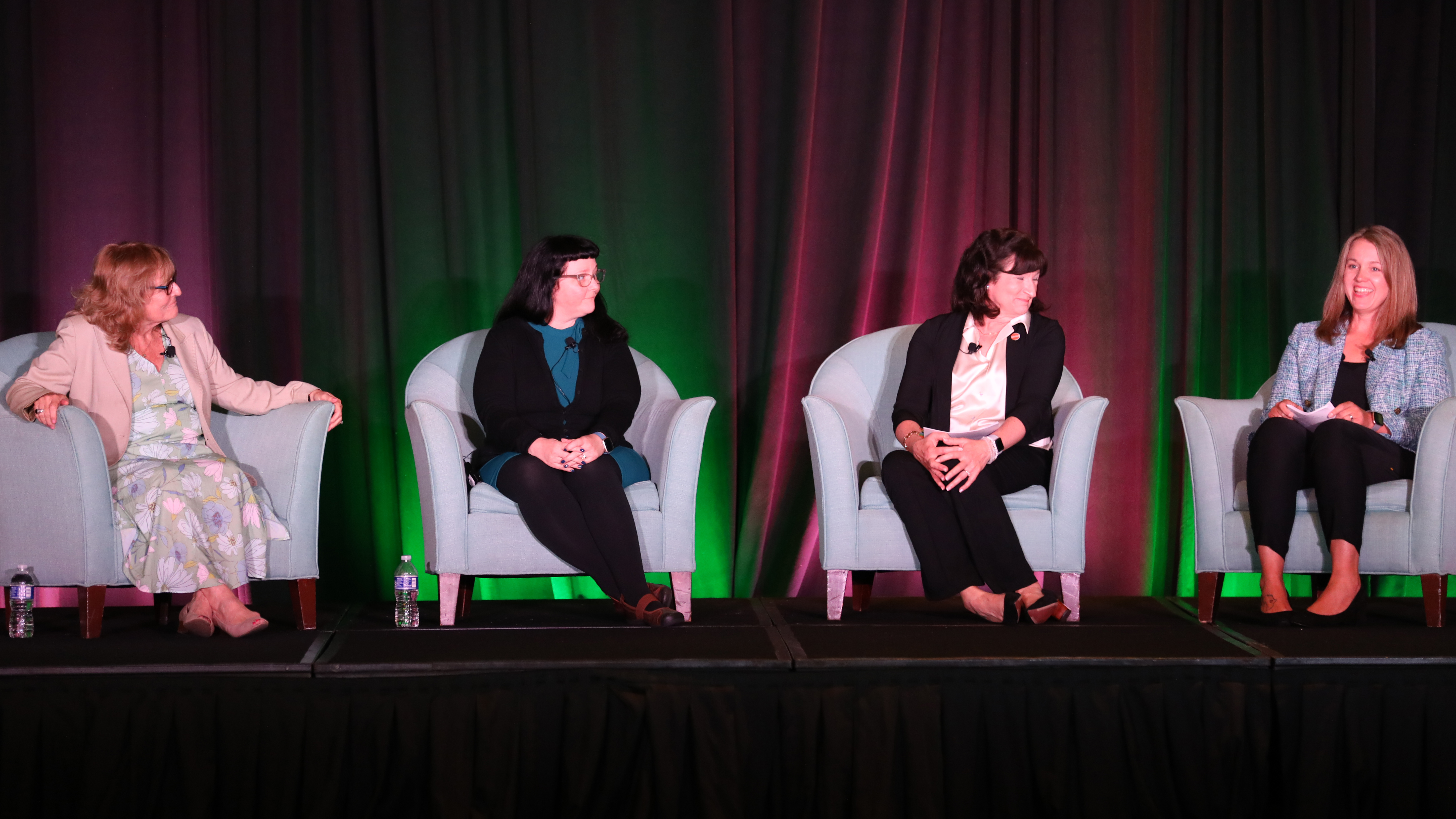Chronic and complex care navigation goes hand in hand with addressing social determinants of health—if patients’ basic needs are not being met, they don’t stand a chance against cancer or chronic disease. The Association of Chronic and Complex Care Nurse Navigators (ACCCNN), a new chronic and complex care navigation organization, has set out to change that.

Left to right: Billie Lynn Allard, RN, MSN, FAAN; Jennifer Edwards, BSN, RN, OCN, LSSGB; Mary Anderson, BSN, RN, OCN; and Ginger Blackmon, PharmD.
Chronic and complex care navigation requires addressing patient barriers through a personalized approach to care. But perhaps most importantly, it first requires recognizing the importance of social determinants of health (SDOH), such as access to food, water, shelter, and transportation. The fulfillment of these needs is often taken for granted by those of us who do not have to worry about them, and as a result, the critical role these factors play in patients’ overall well-being, particularly in those with chronic conditions, is too often overlooked in healthcare.
According to Billie Lynn Allard, RN, MSN, FAAN, co-program director of ACCCNN, the realization that these basic needs must be met to ensure effective healthcare was a sobering revelation for her.
“One of the most critical things that we found when we started down this road is that we had totally neglected asking about the social determinants of health, and that just made me so sad,” she said at the 2023 AONN+ Midyear Conference in Orlando. “If patients don’t have food, water, shelter, or transportation, then how are we going to help them recover from cancer or chronic disease?”
Approximately 45% of all Americans suffer from 1 or more chronic diseases, which are among the most prevalent and costly health conditions in the United States. ACCCNN (a sister organization to AONN+), was designed to elevate and advance the role of the chronic and complex care nurse, and provides a much-needed platform to educate, support, and empower chronic and complex care nurse navigators in driving transformative patient-centered care.
“Our goal with this organization is to, hopefully, give our chronic and complex care navigators what AONN+ has given to oncology navigators,” said Jennifer Edwards, BSN, RN, OCN, LSSGB, cofounder and co-program director of ACCCNN and nursing leader at Banner Health in Phoenix.
Approximately 45% of all Americans suffer from 1 or more chronic diseases, which are among the most prevalent and costly health conditions in the United States.
These navigators coordinate care across multiple sites of service within complex health systems, all while eliminating barriers to timely medical care and providing personalized chronic disease education and referrals to meet their patients’ needs. The inaugural ACCCNN Summit will be held November 19-20, 2023, in San Antonio, TX.
According to Ms Allard, after realizing the significance of SDOH, her small community hospital set out to connect with community agencies and find innovative solutions to improve access to food and shelter. They collaborated with schools and food pantries, engaged with the housing board, and actively participated in community initiatives to address the underlying factors that were impacting healthcare outcomes in her community. This shift toward recognizing the importance of holistic care and the integration of healthcare with the broader community was significant.
“When we started doing this, we discovered that we needed to do everything differently from what we were doing before,” she said. “It uncovered a whole world of what nurses can do within a community that will make a difference.”
Ms Edwards noted that improved documentation and charting is a crucial component to addressing SDOH. Her organization has started an initiative to add SDOH to the electronic health record in a more tangible way.
“My team of navigators were already doing this, but they didn’t realize it because there wasn’t a charting mechanism to show that it was being done,” she said. “Through this initiative, along with more IT support, we’re going to be able to show that we’re doing better than we thought. But we still have a long way to go.”
Ms Allard also highlighted the importance of involving multidisciplinary teams and social workers in ensuring that basic needs are being met for patients. These efforts should reach beyond the walls of the hospital and involve entire communities, she said.
“Social workers need to be at our elbow,” she added. “We need to recognize that if we don’t take care of the basic needs of our patients, the rest of their healthcare is not going to be effective. This is where we have to start.”



